Plex: 2 October 2024
Update from the Swannanoa River; Cultural Structures and Managing Change; The AI Podcast Thing; Pix from Ken; The Heimlich that Almost Failed

The Biweekly Plex Dispatch is an inter-community newspaper published by Collective Sense Commons on first and third Wednesdays of each month. Price per issue: 1 USD, or your choice of amount (even zero).
In This Issue
- Update from the Swannanoa River (Kevin Jones)
- Cultural Structures and Managing Change (Douglass Carmichael)
- The AI Podcast Thing (Peter Kaminski)
- Pix from Ken (Ken Homer)
- The Heimlich that Almost Failed (Ken Homer)
Update from the Swannanoa River
by Kevin Jones
We have a bed and a roof and propane heat in an airbnb on the farm that was not flooded. And a neighbor with a solar generator and a well so we have water.
Ed. note: Kevin lives along the Swannanoa River in western North Carolina, which experienced devastating flooding in connection with Hurricane Helene. Here's one of a number of news articles that gives a glimpse of the aftermath: Asheville floods force residents to scavenge for water, food. I also recommend “This is our Sandy” by Susan Crawford, which reflects on the precipitation over North Carolina, and our “ferociously accelerating climate change.”
charles blass
Cultural Structures and Managing Change
by Douglass Carmichael
Climate disruption has produced lots of discussion of CO2 and its material conditions, especially aimed at needed changes in response to climate change. But not much has been explored about the social conditions. Yes, there is a sense that politics and governance and economy have to change but it remains abstract. Key discussions such as Plato and Aristotle and St. Augustine and characters like Vico, Thomas Aquinas, Machiavelli, and Polybius, up to the debate between Hobbes and Rousseau, or a modern, Sheldon Wolin Politics and Vision or the still active Wendy Brown at Berkeley, are not read nor referred to with much depth.
These cultural structures rise on and to some extent try to limit or guide the physical world, but themselves remain mostly unexplored relative to their importance and relevance to managing change. Thorstein Veblen, who wrote The Theory of the Leisure Class (1899), and coined the concept of Conspicuous Consumption. The leisure class cannot exist except through the use of resources from a successful material science, engineering, and the economy, what Lewis Mumford called the megamachine, because of the dependence of the rich and most of the middle class on the material culture. Its members are reluctant to change anything.
All of us are implicated by our position within the Social System, a collusion, which we pretty much ignore. Veblen made the distinction between “institutions” and “technology”. We know much more about the tech than the institutions but both must change if we are to do any cutting of fossil fuels or other climate-related problems such as ice, drought, flood, or plagues - and the concentration of wealth in the hands of the rich.
It is kind of off-putting to hear a billionaire claim that they earned it when their career looks more like the path of a ball in a pinball machine extracting wealth from the institutions of a society they used without credit. Think of the education of young people to be programmers. High cost for society, payoff by the agency of a few.
Some students at Stanford read the difficult work of Rene Girard who proposed a Veblen-like theory of wealth through imitation of the rich, at Stanford where he was on the faculty, by students who went on to entrepreneurial success.
So we have lots of talking about CO2 without discussing the governing culture.
If in understanding climate destruction the choice is either:
- The world needs even more energy and the energy companies will support the need by more drilling, pumping, and refining
- Using less fossil fuel
Does the full spectrum of your professional activities support 1, or 2?
charles blass
The AI Podcast Thing
by Peter Kaminski
Perhaps you've heard a clip of one of the “deep dive” AI-generated podcast episodes by Google's NotebookLM. Perhaps you haven't.
In either case, I urge you to do a deeper dive and explore the technology more for yourself. The investment is low, and I think you will be pleased with the return on investment. And, I apologize in advance, you will experience being a little creeped out along the way. Onward to the future!
The first step might be listening to a few examples. (Google sign-in required. If you really don’t have a Google account, it’s okay to skip down to where I talk about PDF2Audio.)
Here’s an episode about last week’s OGM Call, 2024-09-26. Or another instant classic, the one where the AI hosts learn that they’re not human. (No, these AI hosts don’t really think or feel–or indeed, even exist–it was just several stages of AIs synthesizing plausible-sounding AI podcast hosts and their plausible reactions. No AIs were harmed in the process.)
After the initial reaction to how realistic it sounds, you’ll realize it’s sort of a parlor trick. But if you think a little more past that, you’ll also realize that it’s a watershed moment, perhaps not unlike the launch of ChatGPT, and that there’s a lot more potential there that isn’t just a parlor trick.
A next step–remember, I said the investment was low–go to https://notebooklm.google.com/ and play around with NotebookLM for yourself. It is currently free, if you have a Google account. Create a new notebook, add some sources (PDFs or other documents, links to non-paywalled websites, YouTube videos, etc.), click the “Generate” button in the Audio Overview section and let it get started generating. Click some of the other “Help me create” buttons. Check out the results. Reflect on what you could do if you gave it more or better source materials.
If you want to try something similar that you pay a small amount of money for, rather than getting it for free from Google, you can get an OpenAI API key and then try PDF2Audio. It’s not quite as stunning as NotebookLM’s podcasts, but still, very interesting and useful, and in some ways, easier to control. For text generation model, you should probably select gpt-4o-mini or gpt-4o–most people don’t have API access to o1 yet. (With some colleagues, I am building AI Coaching Forum as a place to learn how to make sense of paragraphs like this, but it’s not ready for prime-time yet, just early adopters. If that describes you, though, email me.)
Here are some additional resource links and explanations:
- OpenAI API key: Anybody can sign up and pay for OpenAI services by the token.
- PDF2Audio is a simple open source application that just organizes your documents and then sends them to OpenAI's LLM and text-to-speech APIs to generate podcast transcripts and audio. It works better than I would think it would, although I miss NotebookLM's hosts’ disfluencies.
- The OGM 2024-09-26 notebook I built to create the podcast episode uses just the text transcript from the YouTube recording of the call. It's not the best application for NotebookLM; you should try to use more documents and/or videos for your notebooks.
- More background on the “AI Hosts’ Existential Crisis” episode from the originator: I want to offer some clarity.
- Steven Johnson (editorial director of NotebookLM) on Using NotebookLM to remember everything you've read. One of the key takeaways applicable to any kind of source material, not just quotes: “A lot of folks have asked how I get 8,000 quotes into a single notebook, when currently notebooks are limited to only 50 sources. The key thing is that each source can have up to 500,000 words in it, so if you can compile your quotes into giant documents, you can easily fit a quote collection of that size into a single notebook.” Got that? Giant documents.
- Two tweets from Andrej Karpathy: NotebookLM is quite powerful and worth playing with, and Deep Dive is now my favorite podcast.
- Some description of the methodology from Steven Johnson on the Hard Fork podcast.
charles blass
Pix from Ken
by Ken Homer
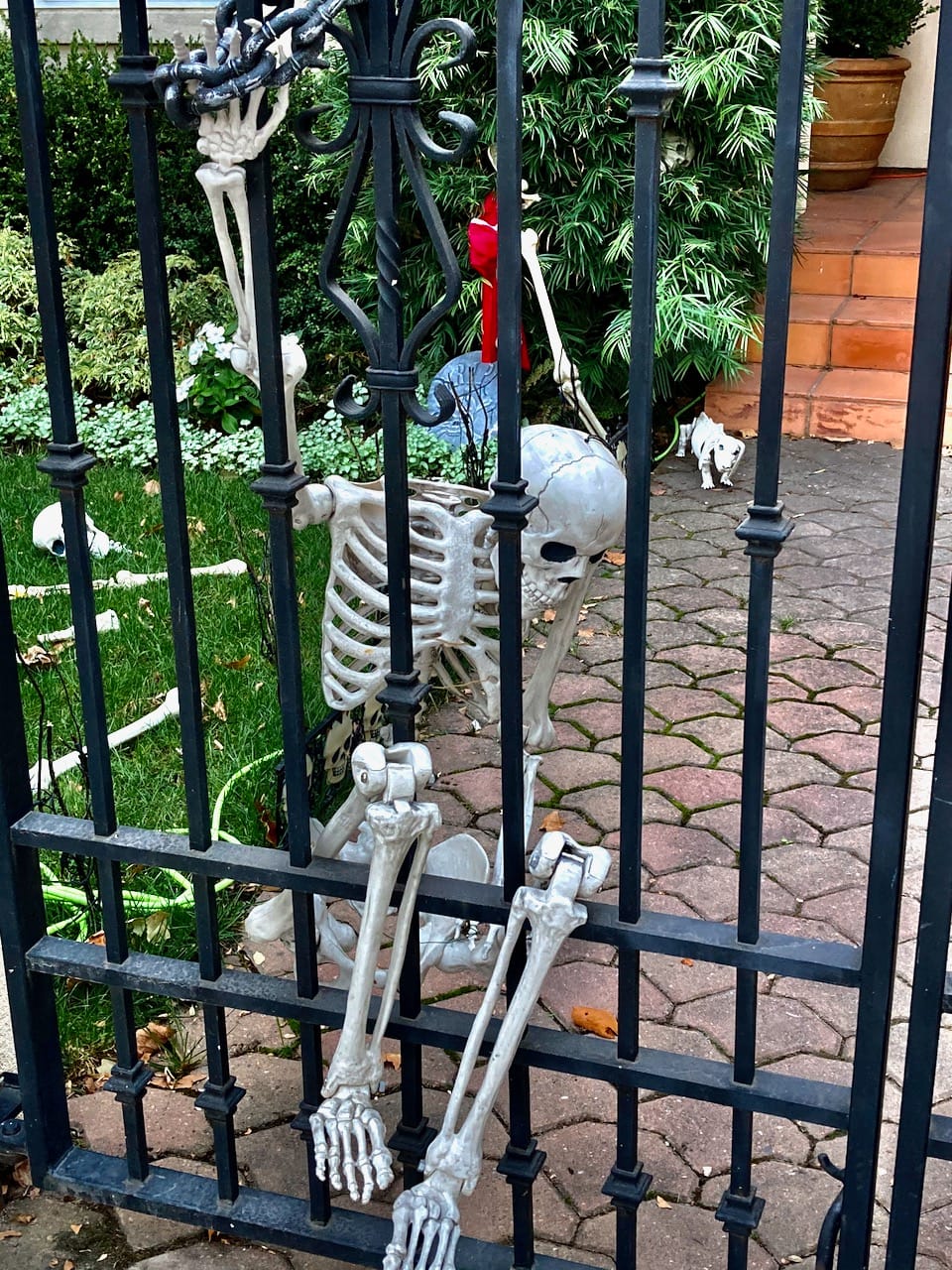
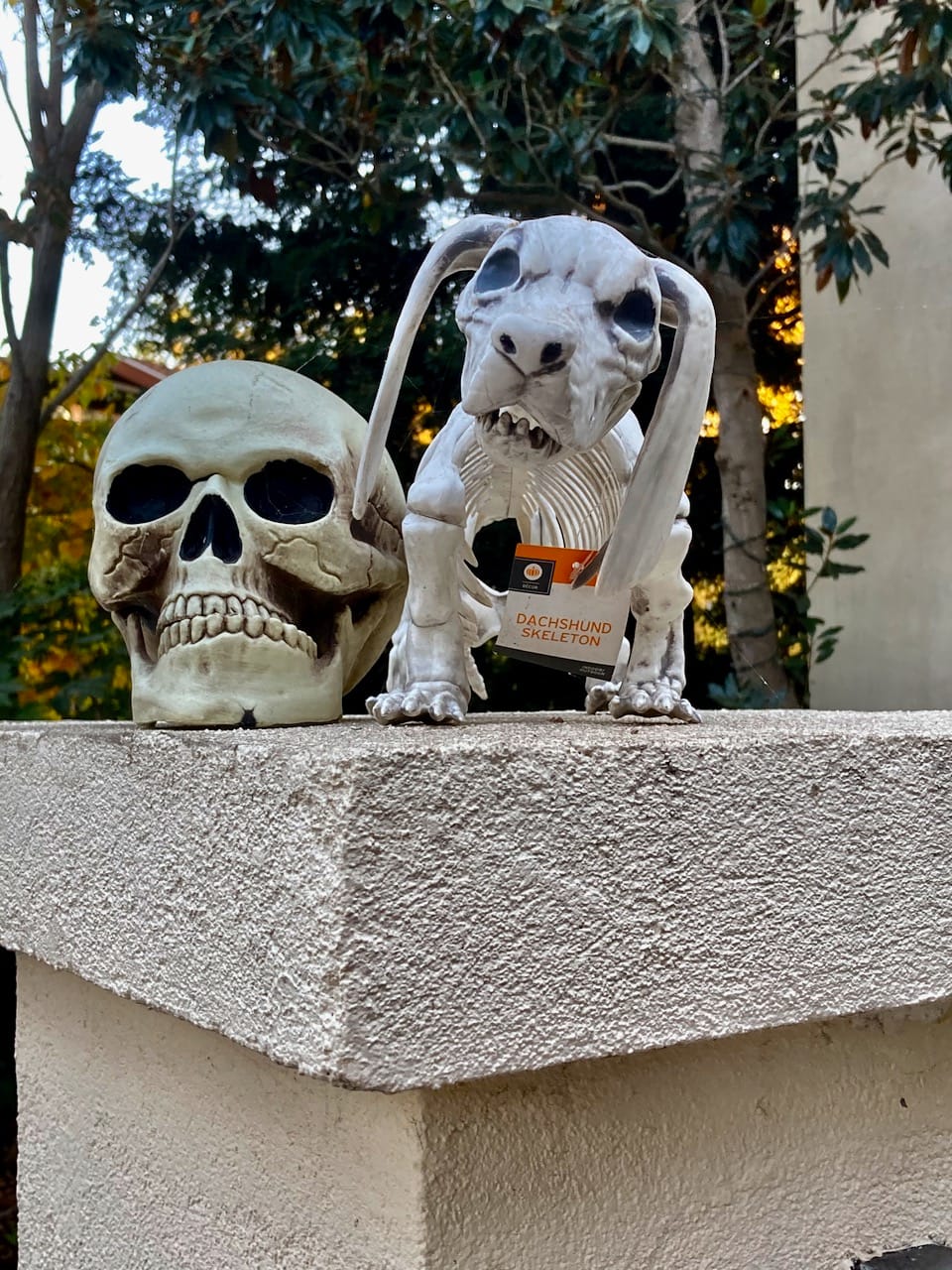
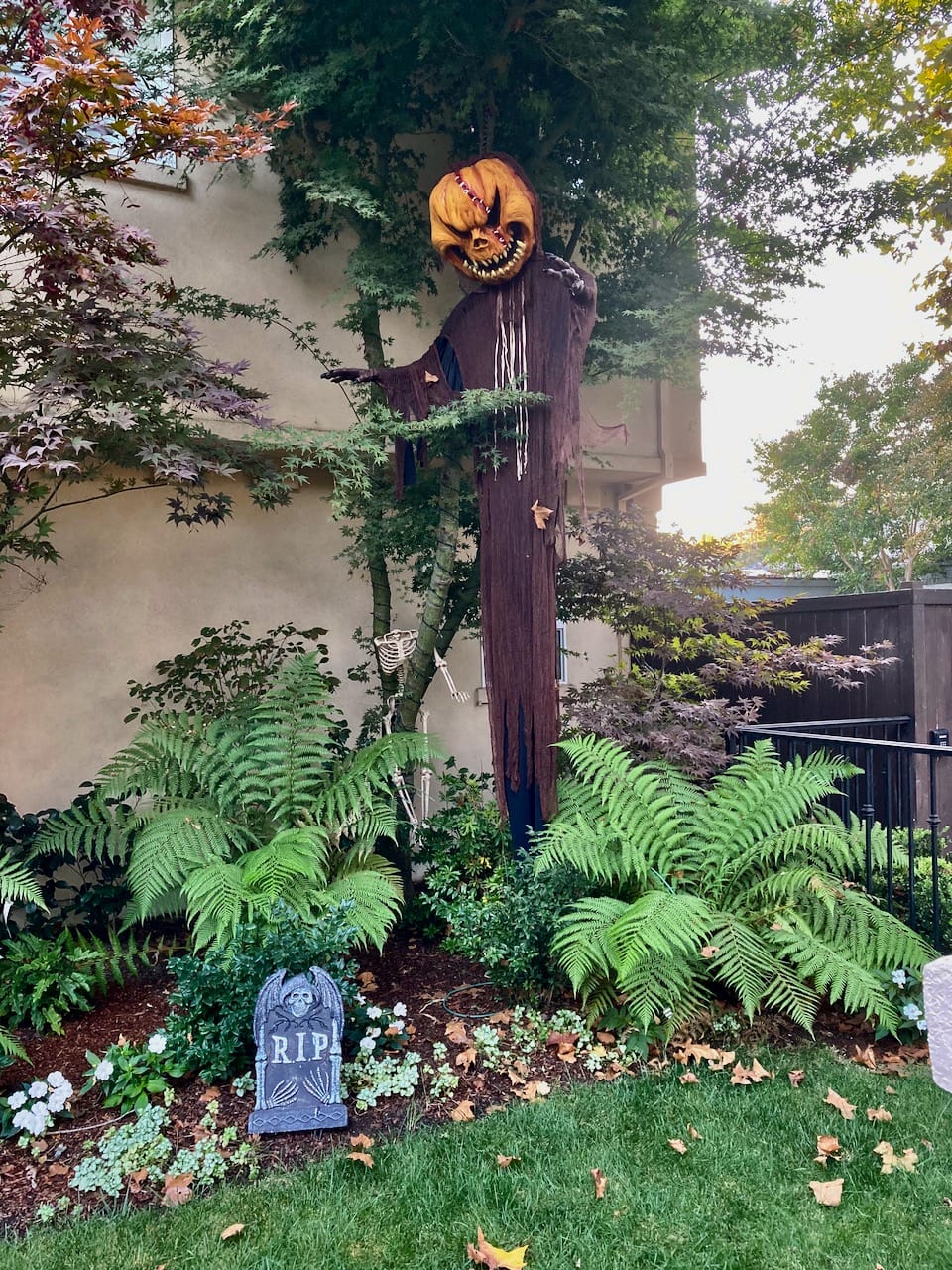
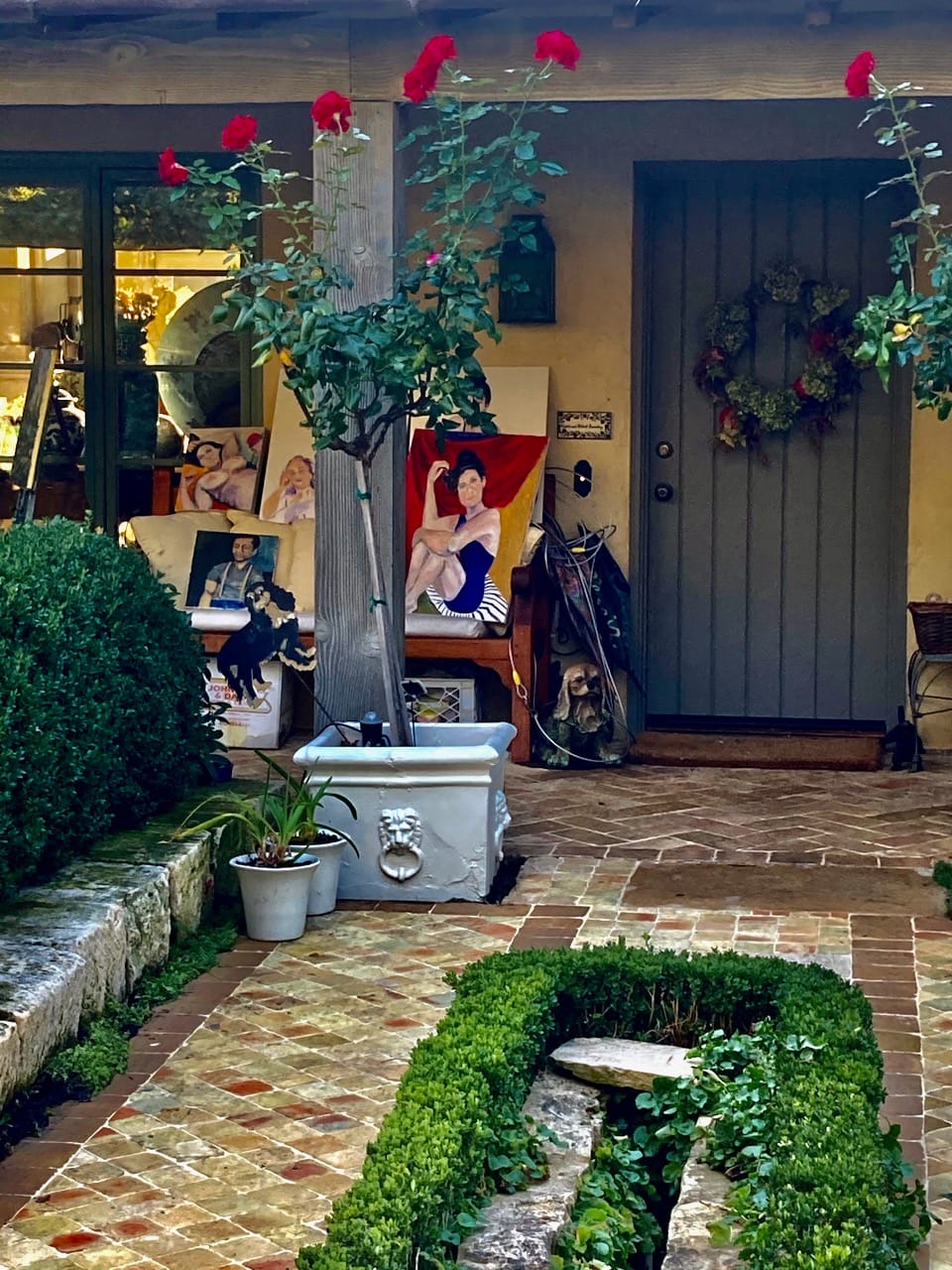

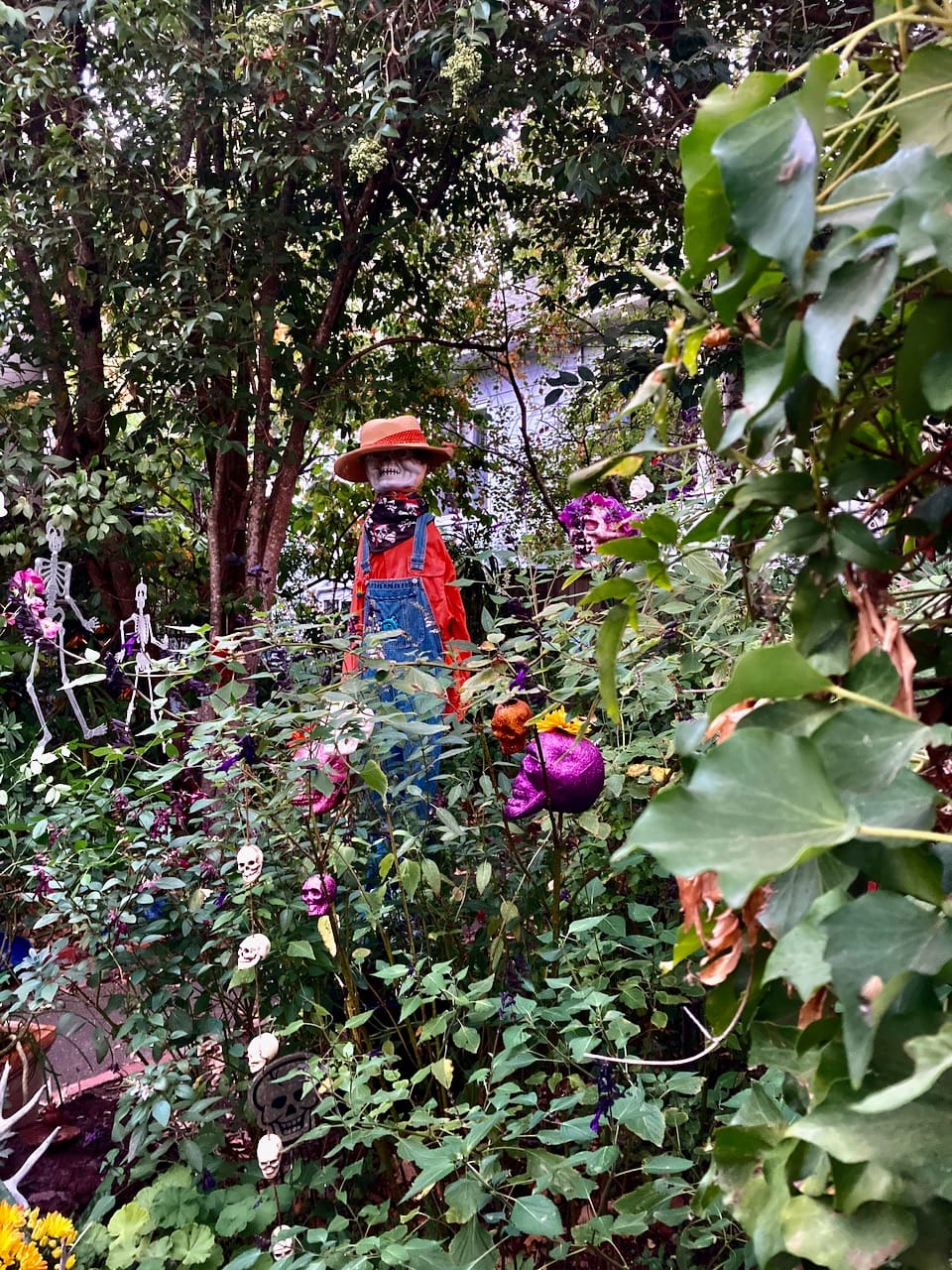
charles blass
Summer 2018–The Heimlich that Almost Failed
by Ken Homer
My friend Michael puts on
A hellava party every summer.
Between 70 and 100 people
Show up each year, gathering
in his backyard for food and fun
and music and wine and laughter.
Weed is plentiful too.
Everyone brings a yummy dish
and a favorite bottle to share.
Michael provides the oysters.
By the end of the party
two trash cans are filled with shells.
We eat em raw and BBQ’d.
They spent the previous night
sleeping in the mud of Tomales Bay.
On this particular day,
I was sitting on the side porch
of the second home on the property
out of sight from Michael’s house.
I was chatting with some friends and
enjoying my second glass of wine.
I had a couple of hits off a joint
that was being passed around
and was enjoying a nice buzz.
Just then a woman appeared...
“I need the strongest guy here!
There’s a man who is choking to death!”
I sprung out of my chair and followed.
There in the middle of the yard
stood a man of tremendous girth.
Behind him stood a man attempting
to execute the Heimlich Maneuver.
Except that he had his hands
below the big man’s navel, not on his
solar plexus where you need to press.
The big man was white as a sheet.
There was no time to be tactful.
“Please step aside what you are
doing is not going to work.”
I placed my hand on his shoulder,
and he stepped away.
I asked him “Can you cough?”
The big guy shook his head no.
“Don’t worry I’m going to help you.”
He looked at me with terror in his eyes.
I stood behind the big guy,
whose name I later learned was Tom.
I reached around and put my left fist
in front of Tom’s solar plexus and then
I rotated it so that my thumb was
right up under his ribs. Then I placed
my right hand over my left and then
I tried to squeeze as hard as I could.
But it was of no use. Tom’s enormous
bulk meant my arms were fully
extended. I couldn’t manage to apply
sufficient pressure to dislodge whatever
was stuck in his windpipe. I had to think
and I had to think fast as to what to do.
A woman appeared in front of us.
“I’m a nurse—he needs to drink water.”
She held out a cup of water to Tom.
“Go away! He’s choking! He can’t drink!
That will only make things worse!”
(In the back of my mind I wondered
What the hell they are teaching
in nursing school these days?!)
“Don’t worry Tom-I’ve got you.”
His color had gone from white to blue
and was headed toward purple.
I told him not to worry-more as a
way to reassure myself because
I was sore afraid he was going to die.
I moved around in front of him.
Placed the heel of my right palm
directly under his ribs and squatted low.
Then using my legs, I thrust upward
with everything that I had. I thought for
sure this would work. But after 47 squats
and 47 thrusts Tom still couldn’t breathe
freely and his color made me queasy.
Somehow though he was conscious.
“Point to where it feels stuck.” Tom
indicated the area of his thymus. I placed
one hand on his back and the other on
his chest. Then drawing on my chi
reserves, I attempted to bring my hands
together inside his chest. It was more of
an energetic squeeze than a physical
one as l literally willed whatever was
stuck in there to loosen and dislodge.
It was my last play–I was spent. My
knees were shaking and I was
exhausted. My legs felt like jelly I thought
I was going to pass out But it worked!
Suddenly Tom gave hoarse cough
And the food flew from his mouth
He started to breathe again!
Halle-freakin-lujah!
I felt my adrenaline start to ebb.
A woman who had been watching the
whole thing took me by the shoulders.
She had kind and sad eyes and a really
lovely smile. “Oh my god! You saved his
life! You saved this party! Imagine if he
had died! Everyone would be so
distraught.” I burst into tears and she
pulled me to her and gave me a hug.
Not two minutes later, the paramedics
arrived. They gave Tom a thorough going
over and decided that he was well
enough to stay at the party.
I’ve discovered over the years that this is
how I am. For whatever reason, I’m
good in a crisis. Time telescopes for me.
Everything slows down and I seem to
see clearly what needs to be done.
And I do it. Only once it’s over, and the
danger has passed do I take in the
reality of what’s occurred. In this case,
it was the hindsight of knowing that I
literally had this man’s life in the palm of
my hand that shook me to my core.
When the crisis is over is when I am apt
to fall apart. As I did when that woman
Spoke and acknowledged my efforts.
Later my wife found me. She was inside
the whole time and she had no idea of
what transpired. She told me she’d be
the designated driver. She handed me
a glass of wine - enjoy, you earned it!
I saw Tom again at Michael’s party the
following year. He looked right through
me and he walked right past me. My
face clearly did not register for him.
I didn’t take it personally. We were both
in an altered reality on that hot summer
day in 2018 when I managed to prevent
his death by choking.
Ken Homer • March 2024
Thank you for reading the Plex! The next edition will be published on 16 October 2024. Email Pete with suggested submissions.
Grateful appreciation and many thanks to Charles Blass, Douglass Carmichael, Ken Homer, and Kevin Jones for their kind contributions to this issue.